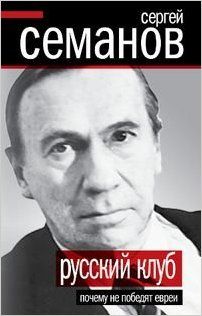Editor’s note: The following are excerpts from George F. Held’s translation of a work by Léon de Poncins, a French traditional Catholic highlighting the role of Jules Isaac in bringing about Nostra Ætate. de Poncins focuses on the influence of Jules Isaac whose work emphasized the anti-Jewish themes in the Gospels and in the writing of many of the Church Fathers. Flagrantly anti-Jewish material was indeed central to the writing of the Church Fathers, leading me to propose that the Catholic Church beginning in the fourth century was at the center of an anti-Jewish movement aimed at lessening the economic power of Jews in the late Roman Empire (as seen, e.g., by its vehement opposition to Jews enslaving non-Jews). This material is in Chapter 3 of Separation and Its Discontents (see summary here). Jules Isaac simply gathered this material together and expressed his outrage, then leaped to the conclusion that this Christian tradition was responsible for the Holocaust, a dubious proposition at best. De Poncins, as a traditional Catholic, is angry that a centuries-old tradition has been jettisoned. The new doctrine “rests on nothing! Not a single passage of Holy Scripture, not a single saint, not a single Pope—at least until 1962—has ever supported a similar theory.” It should also be noted that recent research by Prof. John Connelly has also highlighted the role of Jewish converts in altering Church doctrine on Judaism (see here). All footnotes except #1 are from de Poncins. Part II focuses mainly on Isaacs’ anti-Jewish quotations gleaned from the writings of the Church Fathers.
Translated by George F. Held[1]
Contents
Introduction
I. Nostra Ætate
II. Origin of the Reforms Proposed to the Council
III. Jules Isaac and Christian Teaching
IV. Jules Isaac and the Fathers of the Church
V. What Jules Isaac Demanded from the Council
VI. The “Judeo-Christian Friendship”
VII. Judaism’s Struggle against the Catholic Tradition
VIII. Only the Monotheism of Israel Is of Divine Essence
IX. Supposing that Jesus Christ Historically Existed
X. Israel and the Revolts of the Mind
XI. Jewish Imperialism
XII. The Divinity of Jesus Christ: Obstacle for Jewish Messianism
Introduction
One of the most disruptive changes in Catholic doctrine introduced by Vatican II is certainly the Church’s teaching about the Jewish people. Up to forty years ago, in fact, all theologians, relying firmly on the Gospels, on the Fathers of the Church and on the ecclesiastical Magisterium of nearly 2,000 years believed that with the coming of Jesus Christ and the advent of the New Covenant sealed with His Blood, the New Israel of God is no longer the people of the Old Covenant, but all men called to be part of the Catholic Church through Baptism. It was also common opinion that the Jewish contemporaries of the Savior and those who lived subsequently (insofar as they “shared in” their forefathers’ “crucifixion”) were deicides, or that they were stained with the worst crime: the murder of the Son of God and the rejection of His messiahship and divinity.
That was what all Catholics believed at least until 1965, when with the approval of the council’s document Nostra Ætate a new doctrine was introduced according to which the Jews were in fact not responsible for the death of Jesus (unjustly attributed to the Romans, simple material executors of the crucifixion), and therefore had no longer to be considered as cursed by God for their enormous sin. Continuing along this line of thought and action one went even further and proclaimed that the Old Covenant between God and his people was still in force,[2] and thus maintained in fact that God had not rejected Israel because of its refusal of Christ and the salvation offered by Redemption which he accomplished on Calvary;[3] that anti-Semitism was a sentiment fed in the population from pre-council Christian teaching,[4] and that such a sentiment had led to the fierce persecution of Jews put into action by Nazism and in the Holocaust, for which, therefore, the Church would be responsible.
And thus it is that the highest representatives of the Bride of Christ, without blemish and without sin, prostrated themselves and asked forgiveness of Caiaphas’ successors for the crime committed by “Christian peoples” (!?), fomented in their hatred toward the Jews by a “distorted” reading of the Evangelists and by the excessive enthusiasm of some Christian orators of the first centuries. In fact, this council document—one must read it to believe it—is not equipped with any notes, and that is because this far-fetched thesis, imposed on the faithful of the whole Catholic world, rests on nothing! Not a single passage of Holy Scripture, not a single saint, not a single Pope—at least until 1962—has ever supported a similar theory…. Read more

 Re
Re


